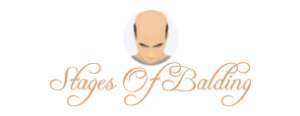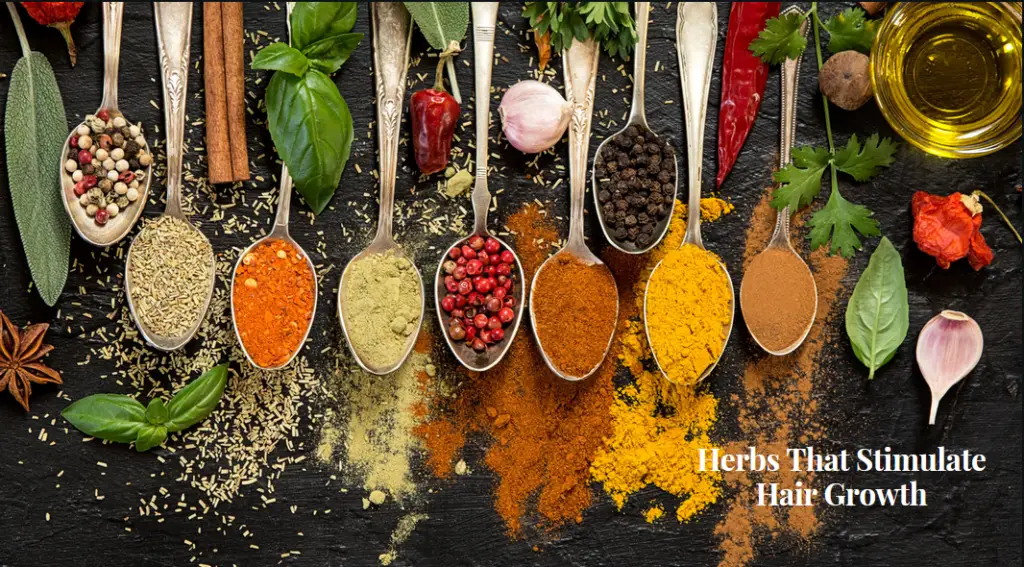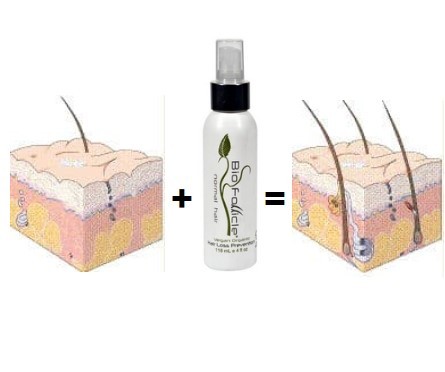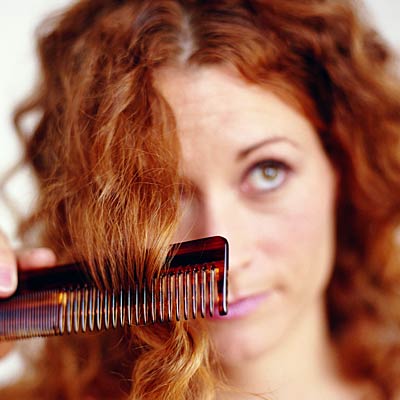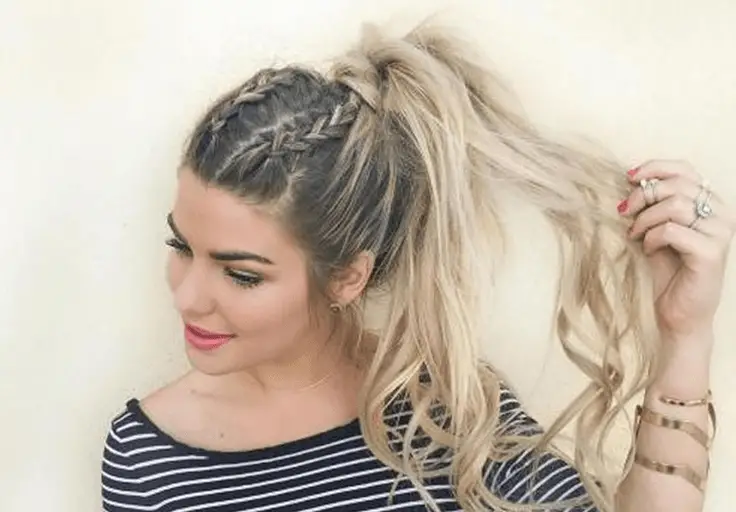Are you looking for a comprehensive guide on hair loss remedies using herbs that stimulate hair growth PDF? If so, you have come to the right place. We provide very comprehensive information about herbs for hair loss, and we hope that you will find your answers here and get back to your original hair. Some herbs for hair loss products information are also listed on this site. But this blog post is just what you need!
Here we will explore the different herbs that can help to boost hair growth and provide you with a free downloadable PDF that contains detailed information on herbs that can help with hair growth. We’ll also discuss the potential side effects of using these herbs and how to ensure you get the best results. With this information, you can be sure that you’re making an informed decision when it comes to your hair health. So let’s dive in and explore the world of herbs that stimulate hair growth!
Overall
Having healthy, lush hair is something that most people strive for. Unfortunately, hair growth can be a long and difficult process, requiring patience and dedication to take care of it properly. But did you know that there are herbs that can help stimulate hair growth? Herbal remedies have been used for centuries to aid in many health issues, and they can be just as beneficial when it comes to hair growth.
What causes hair loss?
Hair loss can be caused by a variety of factors, including genetics, Dihydrotestosterone (DHT) an androgen, hormones, and certain medical conditions. Some common causes of hair loss include aging, stress, diet, poor nutrition, and certain medications. Unfortunately, it is not always easy to pinpoint the exact cause of hair loss.
Fortunately, there is an alternative way to address these underlying causes: using herbs. Using a combination of natural herbs from different cultures, such as Nigerian herbs for hair growth, Fulani herbs for hair growth, Chinese herbs for hair growth and plants for skin. Herbal hair growth oil, may also provide beneficial results.
Herbs that help with hair loss
If you are experiencing late stages of hair loss, it is important to seek medical attention. However, it may be possible for your hair loss, bald spot and thinning crown to grow back with the right treatment.
While there are many herbs that help with hair loss and promote growth, some of the most effective include:
Thuja occidentalis (Western Red Cedar) – This plant has been used for centuries by Native Americans who believed that it helped ward off colds and other illnesses. It has also been proven effective in treating dandruff as well as promoting healthy skin conditions such as acne or eczema. You can find this herb at herbal stores or online retailers like Amazon.
Herbs such as Aloe Vera, Ginseng, Rosemary, Thyme, Lavender, Peppermint, Sage, Chamomile, Green Tea, Horsetail, and Mugwort may help to stimulate hair growth and reduce the signs of aging. In addition, some of these herbs have specific benefits that target areas such as hair loss. For example, Tobacco Leaves may help to promote circulation on the scalp, and Holy Basil can help to fight dandruff. Finally, some herbs like Yellow Dock Root and Sarsaparilla Root can provide essential nutrients for your hair, while Lemon Verbena can help to strengthen your hair follicles.
Using these herbal remedies can be beneficial for those looking to increase their hair growth and maintain healthy hair. Whether you use herbal oils essential or teas, it is important to research the herbs you are using and understand their individual effects. Additionally, incorporating a balanced diet with plenty of vitamins and minerals will contribute to healthy hair growth. With the right combination of herbs and nutrients, you can achieve healthier and stronger hair in no time!
Can herbs that stimulate hair growth PDF help to bring back your locks?
Though hair loss (Alopecia) is not a debilitating or life-threatening sickness, the very thought of becoming bald can lead to emotional stress and traumatic experience for those who suffer from premature or excessive hair loss. Many will try anything and everything to bring back their locks. Or at least some of their once full head of hair. Hair loss sufferers spend billions of dollars annually on remedies ranging from drugs, supplements and vitamins to special tonics and DHT blocking shampoos for hair growth and thickness.
Conventional treatments for hair thinning include red light therapy for hair loss and hair transplant. Minoxidil and Propecia (Finasteride) are the only two drugs approved by the FDA for hair growth in men. Minoxidil is the only drug available for women with androgenetic Alopecia. These drugs have been proven to show positive results for balding crown conditions on the vertex region of the scalp.
Though these drugs are effective, many are wary of their unknown long-term effect and potential side effects. This has led to increasing interest in alternative remedies such as herbal medicine.
So, What are the herbs that stimulate hair growth?
Here we take a look at some of the herbs that are believed to reduce the rate of hair loss and, at the same time, stimulate new hair growth.
Algae Extract
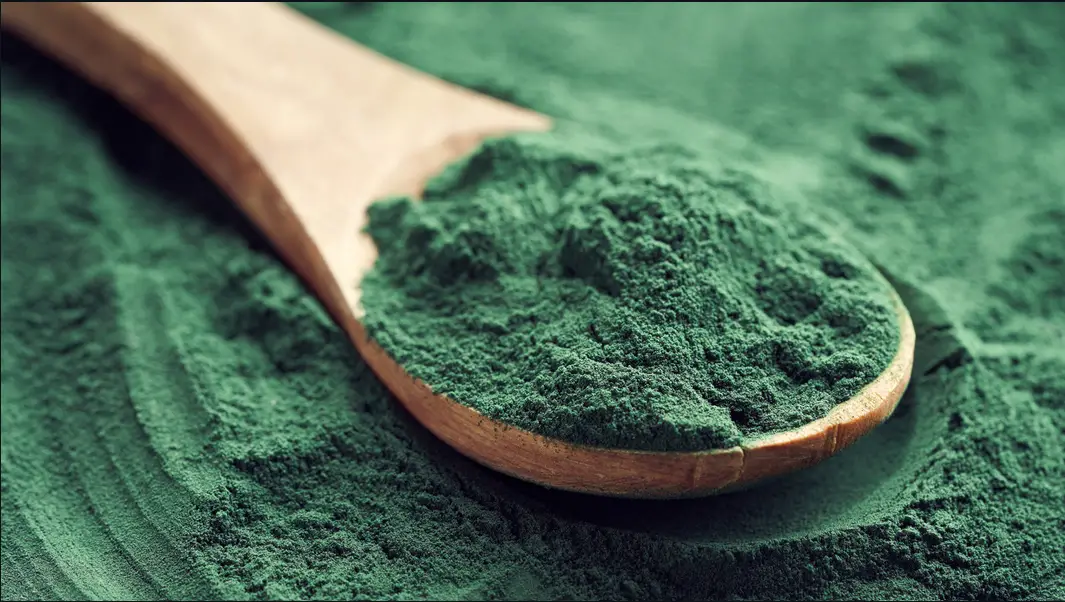
Seaweeds or sea vegetables have long been known to have curative power as they contain a high level of essential amino acids, minerals, and vitamins. Out of thousands of different species found throughout the world’s oceans, about 400 species are used by people as medicine, health supplement, skin care, fertilizers, etc. Some seaweeds, such as Atlantic Kelp and Himanthalia Elongata, are used as hair growth remedies. They act as anti-oxidants to reduce and heal damage to the scalp and hair and also provide a rich source of essential building blocks (e.g., amino acids and vitamins) to help in growing new hair and adding shine to the hair.
Aloe Vera
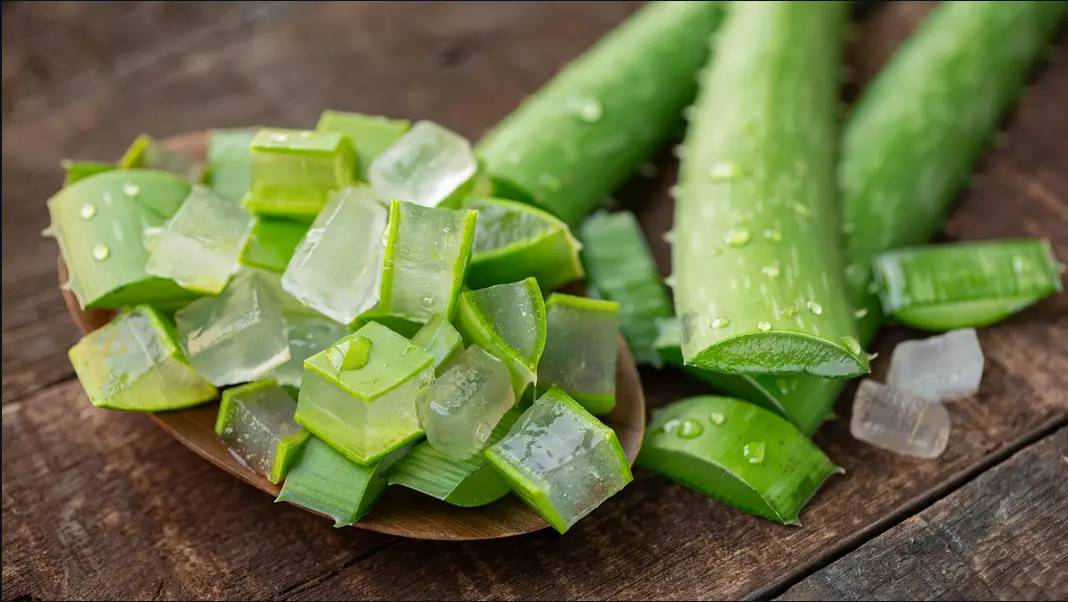
The gel that is taken from the Aloe Vera plant is known for its ability to calm irritated skin and has the properties of anti-inflammatory and antioxidant. When massaged onto the scalp, the gel restores the PH balance of the hair and seals in the moisture content of the hair, making it an excellent hair conditioner. Besides protecting the scalp and hair, Aloe Vera also stimulates hair production and is used as a remedy against Alopecia.
Channelled Wrack (Pelvetia canaliculata Extract)
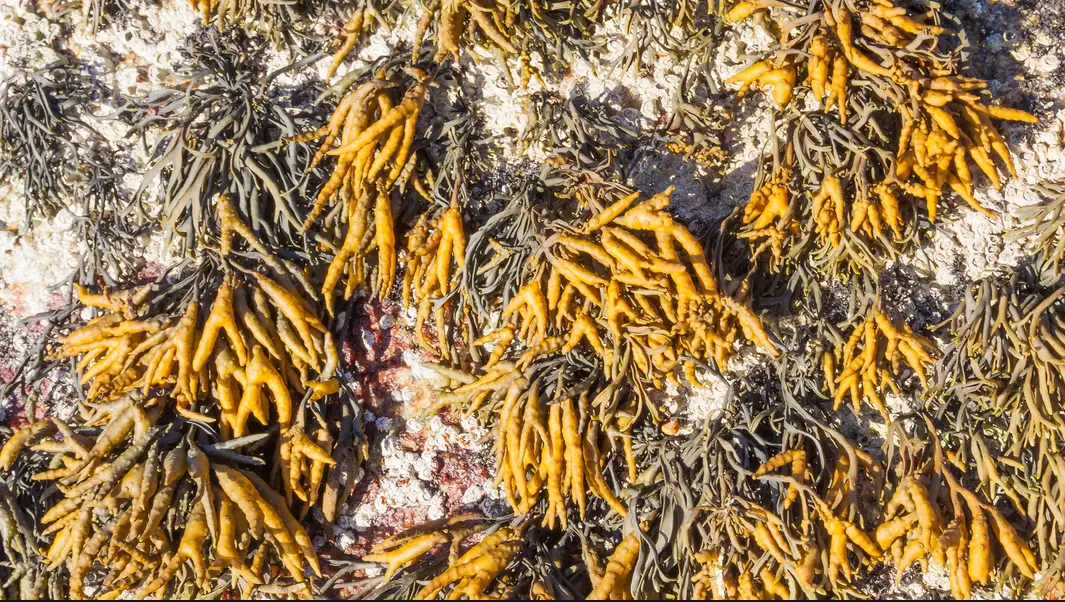
Channelled Wrack is derived from seaweed (Phaeophyta). It contains isoflavones, which in recent studies have been demonstrated to have potent antioxidant properties comparable to that of the well-known antioxidant vitamin E that can help to revitalize, renew and refresh the skin of the scalp. Channeled Wrack also inhibits testosterone binding factors that can lead to hair loss in women. It is used in hair loss products as it promotes hair growth and improves hair thickness.
Dong Quai (Chinese Angelica)
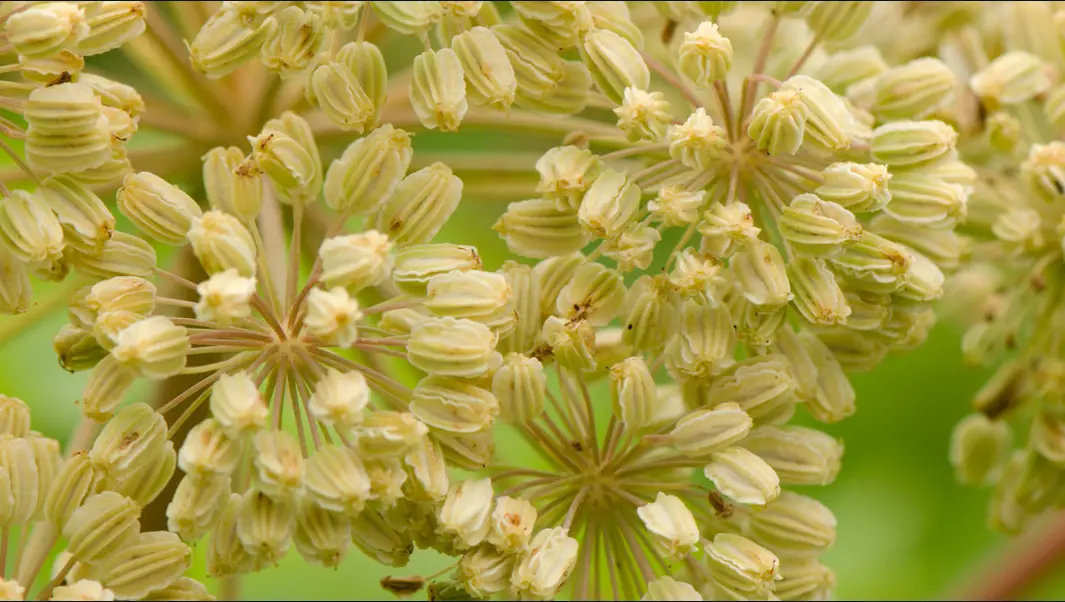
Like He Shou Wu, Dong Quai is a traditional Chinese herb that is used to stop hair loss and even regrow hair. Dong Quai contains phytoestrogens, which reduce the formation of DHT.
Ginkgo Biloba
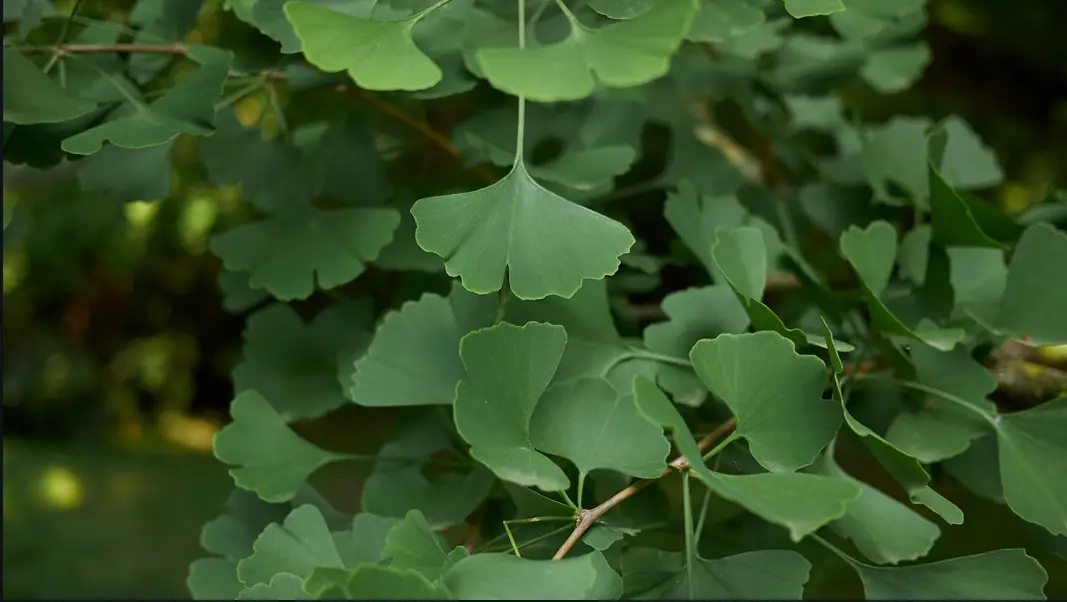
Ginkgo Biloba is a very popular herbal remedy that is thought to help with many problems, among them by improving the circulation of blood to the brain and skin. The majority of herbalists who prescribe this for loss of hair do so, believing that the increase of blood to the brain and skin delivers more nutrients to the hair follicles, and so promotes hair re-growth.
Green Tea (Camellia Sinensis)
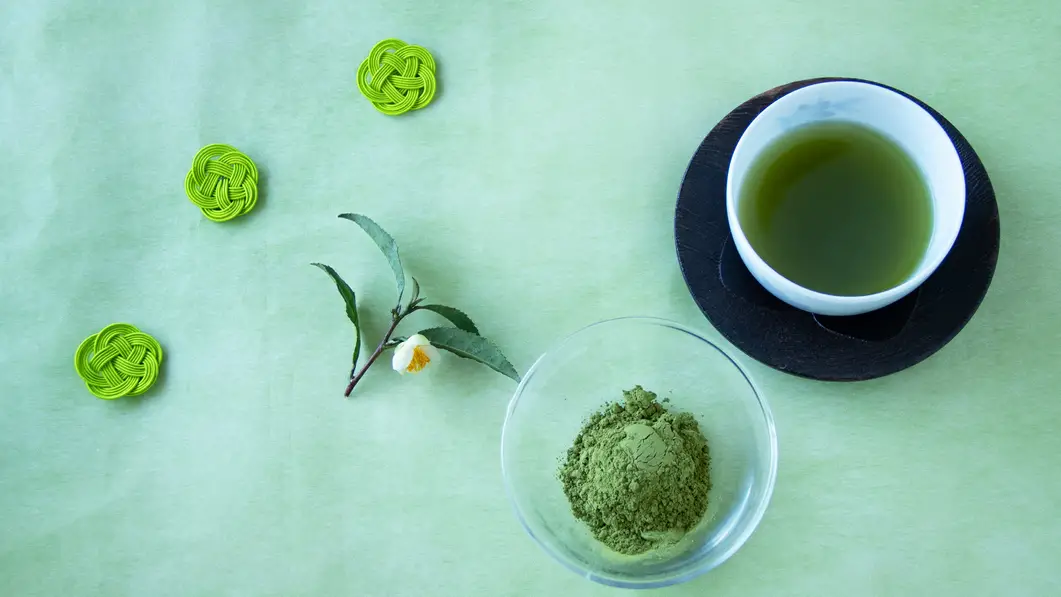
Green tea is another popular herbal remedy as it is believed that the enzyme 5-alpha-reductase is inhibited by the catechins found in green tea. Some herbalists claim that you will reduce the risk of male pattern-type baldness if you drink several cups of green tea or take it in capsule form on a daily basis.
He Shou Wu or Fo-Ti (Polygonum multiflorum)
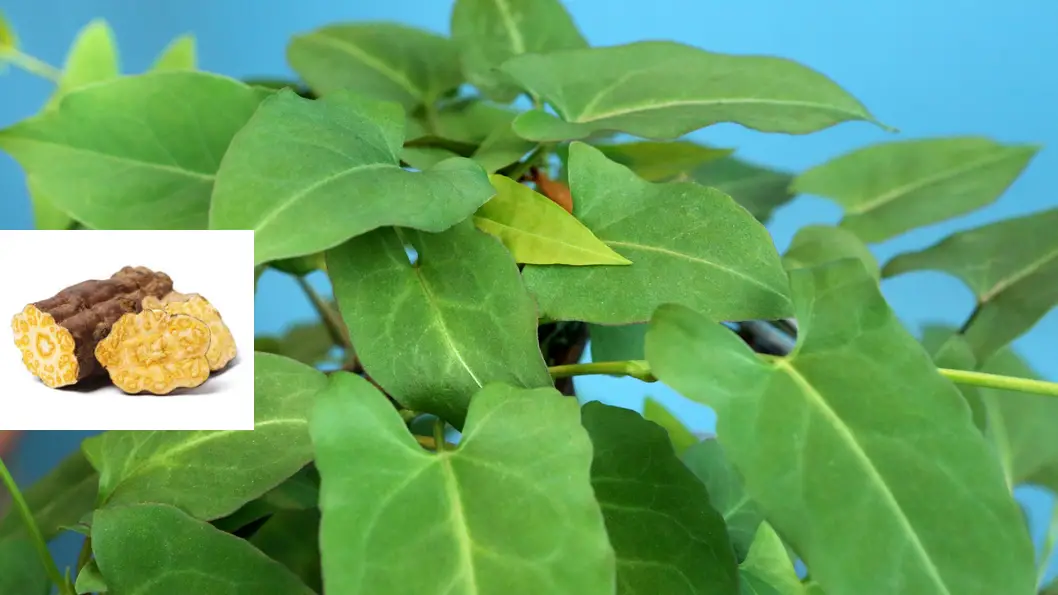
He Shou Wu is an ancient Chinese herb that has been used for centuries for hair loss and baldness. It is frequently available in both tea and capsule form and is one of the main ingredients found in many commercial remedies for the treatment of hair loss. In a recent study published by American Botanical Council (read article), the authors note that this Chinese botanical shows promise as a hair and color restorative and is capable of inducing terminal hair to grow instead of vellus hair (the fine baby hair growth associated with the use of minoxidil)
Horsetail
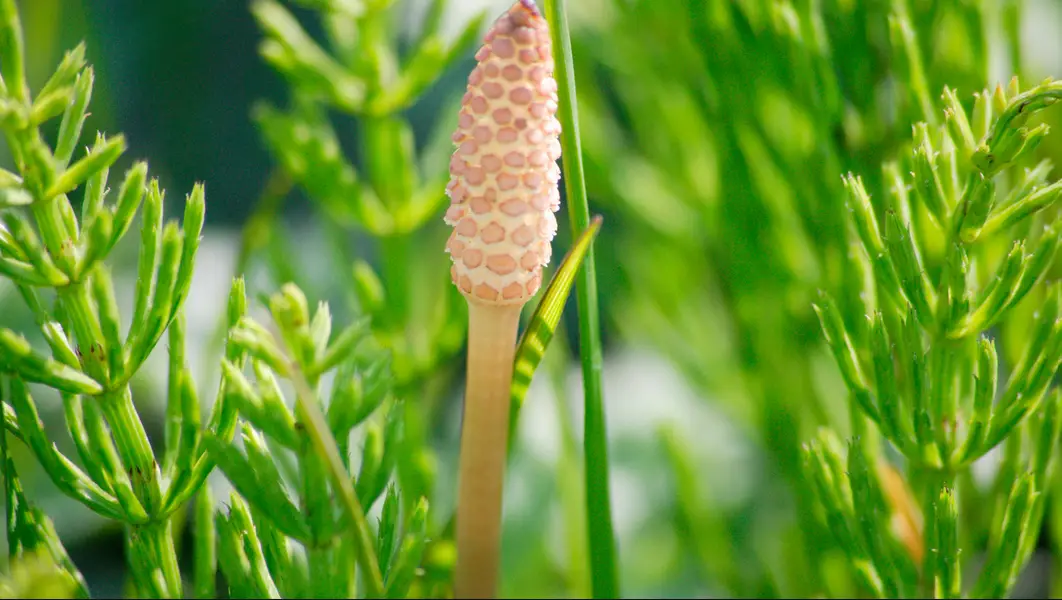
Horsetail is traditionally used to treat genito-urinary system problems. It is also widely recognized that its high content of silica helps to repair connective tissues in the skin, rejuvenate hair, and stimulate hair growth. As such, Horsetail is often added to an herbal formula that fights pattern baldness.
Pygeum (Pygeum africanum)
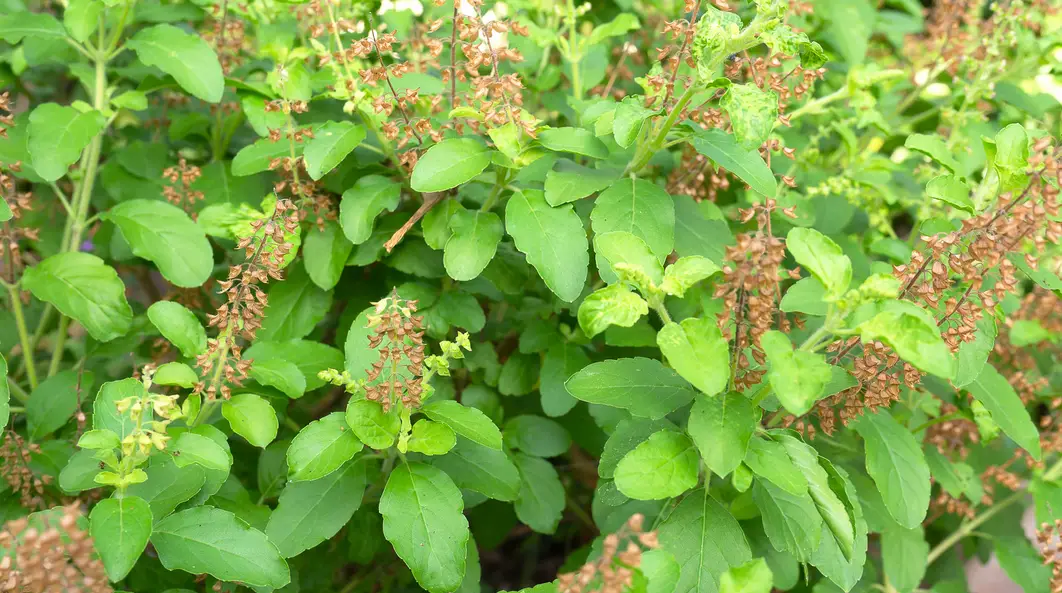
Pygeum is taken from the bark of the evergreen tree and works in a very similar way to green tea. It has been used to treat problems with prostrate for many years in China and can be taken in pill or capsule form.
Saw Palmetto (Seranoa Repens)
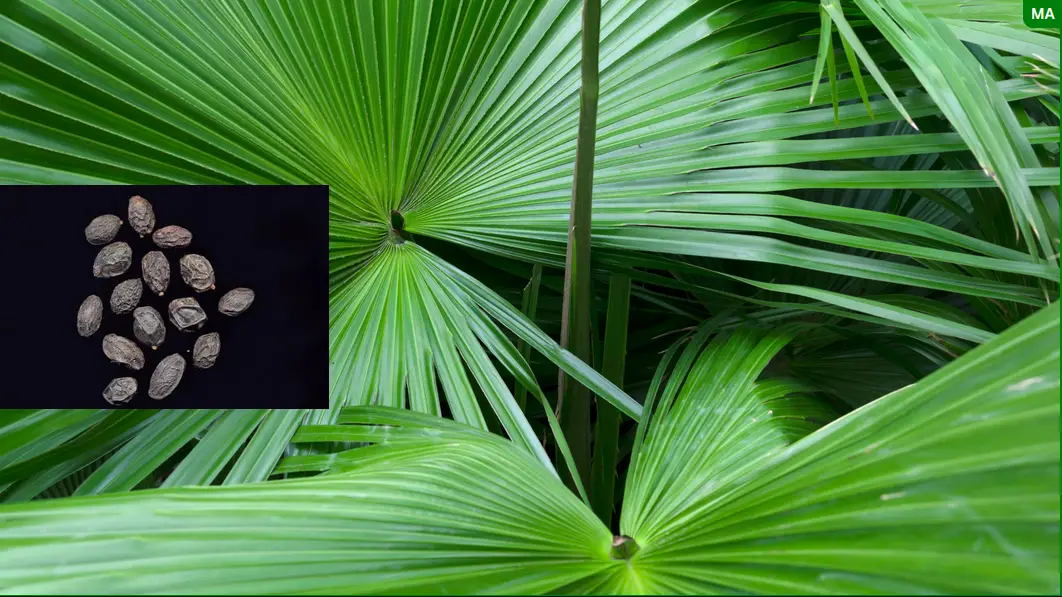
Saw palmetto is a very popular choice among those with hair loss; this is due to the fact that it also has the ability to protect the prostate. Not only does it encourage the hair to re-grow, but it also slows down the loss of hair.
Read more about benefits of Saw Palmetto for Women’s Hair Loss.
Stinging Nettle (Urtica Diocia)
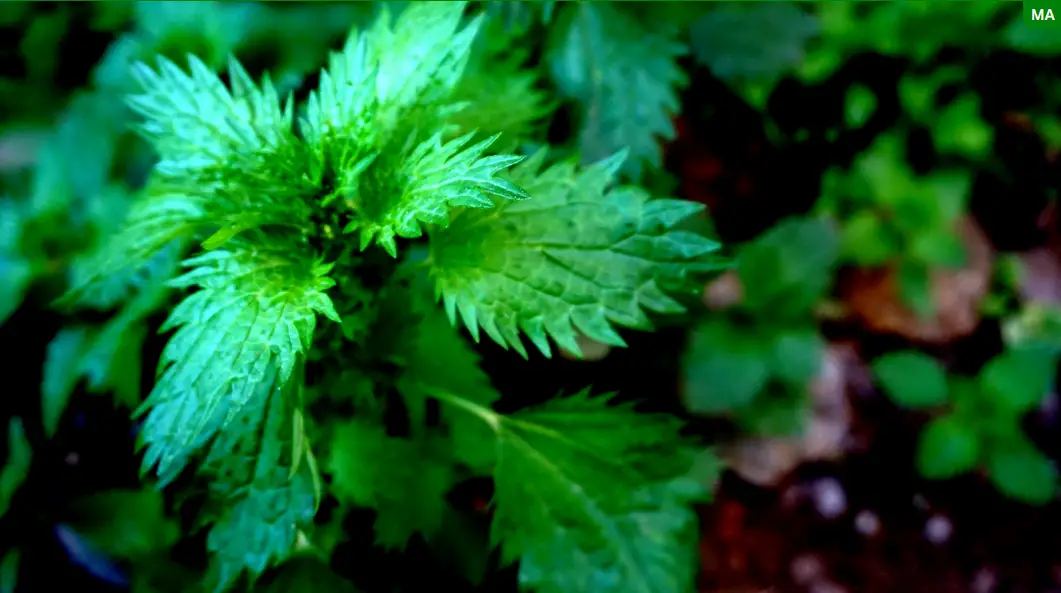
Stinging Nettle blocks the conversion of testosterone into DHT; this is the main cause of hair loss in men. It can be bought in either pill or capsule form and is said to be more effective when used in combination with saw palmetto or pygeum.
Panax Ginseng
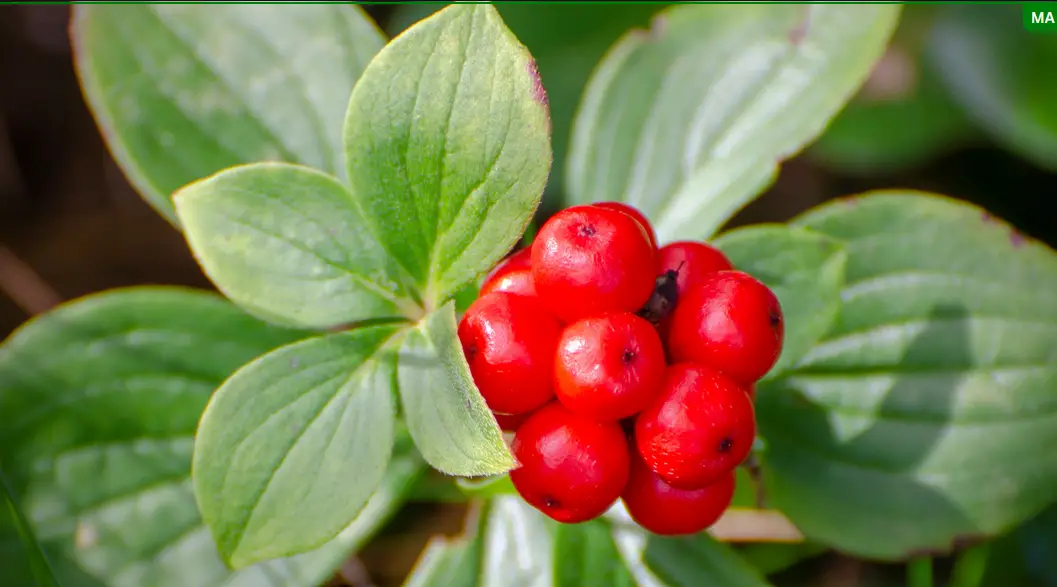
Used in Asia for thousands of years, Ginseng’s well-known benefits include promoting vascular circulation and regulating cellular metabolism. Used in shampoo or hair tonic, Ginseng helps to nourish and strengthen hair.
The above herbs were relied on by many long before scientists started creating hair loss drugs or treatments. While there are skeptics who laugh at these remedies, others beg to differ. After all, what works for some, may not work for others.
Natural Herbal Hair Loss Treatment Products
If you look around the market, you will notice that there are many herbal remedies for hair loss that incorporate one or more of the above ingredients. Though they come in various forms (pills, tablets, tonic), these herbal hair loss solutions are created as a feasible and safe option for men and women to tackle their hair loss problems.
The function and effects of the herbs vary. Hence, it is important for you to understand what goes into the product when considering which remedy is best for you. For your easy comparison and evaluation, we seek out the credible ones and highlight those ingredients which are beneficial to hair loss conditions. The main advantage that these products have over drugs is that they address the problems effectively with no side effects. You can learn more about these herbal solutions by visiting their websites.
| Herbal Ingredients | Folifort | Restolin | Folexin | Tress Anew |
| Fo-Ti |  |
|||
| Saw Palmetto |  |
 |
||
| Horsetail |  |
 |
||
| Pygeum | ||||
| Turmeric |  |
|||
| Stinging Nettle |  |
 |
||
| Chinese herb |  |
 |
 |
|
| Other ingredients that help in hair loss condition | Rehmannia (in combination with other herbs) to restore the hair and scalp to healthy state | Zinc to increase hair density. Vitamin B6 and Biotin which are essential for healthy skin and hair growth | Vitamins, Pyroxidine, Zincs and Magnesium Oxide | Amino acid and essential oil (e.g. Rosemary, Chamomile) that promote thicker and fuller hair |
| Website | Go to folifort.com | Go to restolin.com | Go to folexin.com | Go to tressane.com |
Natural Traditional Remedies
When we speak of natural herbal remedies that are passed down and refined through generations, very often we think of either Chinese or Indian Herbal solutions. Not only that both Chinese and Hindu are two of the world’s most ancient cultures, but they also possess in-depth knowledge of the qualities that are inherent in every herb and have developed sophisticated and holistic treatments for various health concerns, including hair loss.
One of the proven Chinese herbal remedies for hair loss is Herb’s Fuzion Hair Tonic, which is concocted with potent Chinese herbs. Some homemade (Do-It-Yourself) remedies can be quite effective, provided the solution is done with the right guidance. Click here to purchase and download an excellent Indian Herbal Recipe.
Natural Remedies You Can Try To Stop Hair Loss and Help Stimulates Hair Growth
If you suffer from hair loss or thinning hair of the crown and are looking for ways to stop hair loss and help hair growth, here are 8 remedies you can try.
1. Take about 10-15 minutes to massage the scalp before going to bed. Rub your hands till quite warm. Begin from the forehead, and massage your way down to the nape. Repeat. Good massage stimulates blood circulation and strengthens the hair follicles on the scalp. Make it a habit. Do it every night, and over time, you’ll find a remarkable result. Not only does it help stop hair loss, but it helps hair growth. You’ll have shiny, healthier hair.
2. Head Stand (this is my favorite) – stand on your head and keep it for 1- 5 minutes if you can. If you can’t do it that long, a few seconds will do. You can gradually increase the time when you feel more comfortable with the posture. It helps increase blood circulation to the scalp, thus promoting hair growth. A word of caution, for people who have certain conditions, this posture may not be suitable. Consult your doctor before you begin.
3. Cut five thick slices of ginger. Please put them in a pot of water, and bring them to a boil. Keep it boiling for 10 minutes. Rinse hair with water when it becomes lukewarm. It helps prevent hair loss and promote hair growth.
4. Drink cucumber juice daily. Cucumber is a fantastic source of silica. Silica is important for hair health. Daily cucumber juice intake helps prevent hair loss and promotes your hair to grow healthier.
5. Apply Aloe Vera gel directly to the scalp. Leave it for 20 minutes. Rinse. Twice a week. Aloe Vera has long been known for their beneficial effects on hair health and hair loss prevention. It helps the scalp by healing it, and it balances the pH level, thus making the scalp a better environment for your hair.
6. Soak one ounce of ground rosemary, two ounces of ground sage, and a half ounce of ground nettles in one pint of ethyl alcohol for a week. Strain the solution and add one ounce of castor oil and one ounce of water to the liquid. Apply the solution at night before bed or before shampooing. Rosemary and sage are herbs that promote a clean scalp, stimulation of the hair root and thicken hair.
7. Put a few drops of vinegar into warm water. Rinse your hair with water. Vinegar is thought to have a normalizing effect on the scalp’s oil glands and pH level, as well as having a strong cleansing effect. This practice can prevent hair loss and help hair grow healthier and thicker.
8. Mix one teaspoonful of apple cider vinegar with a glass of water. Take it with or between meals. For hair loss caused by a tissue salt deficiency, apple cider vinegar can supply the deficiencies where needed, thus helping re-establish a natural balance and help hair grow.
Choose whatever you like to give it a shot and stop hair loss. Choose whatever you like to give it a shot and stop hair loss. Visit http://anti-hairloss.com for more information on fighting hair loss.
Other Natural Remedies
Other herbal remedies can be used in the treatment of hair loss in a similar way to shampoo by rubbing it into the scalp. The most popular forms of external herbal remedies include onion, capsicum, and essential oil for hair growth such as Rosemary. Onion is thought to help because it has a high content of sulfur which is a hair-healing mineral.
Rubbing half an onion into the scalp or hair before washing can help to promote hair re-growth. Capsicum, a type of red pepper, is also thought to help re-growth as it draws blood to the scalp because of irritation. It is also said to help encourage the release of histamines that stimulate hair re-growth. Rosemary is known for stimulating blood circulation and hence preventing hair loss and regrowing hair.
Nigerian and Fulani Herbs for Hair Growth
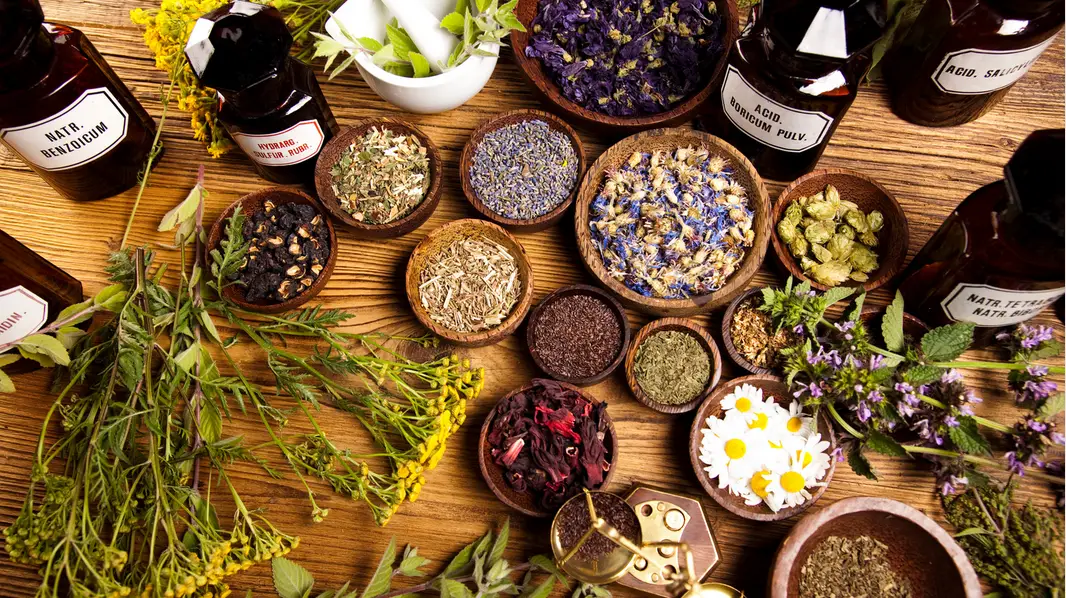
Nigerian and Fulani herbs are used to promote hair growth. They include goat’s rue, green tea tree oil, chamomile flowers, black cumin seeds (also known as Nigella sativa), ginger root, and garlic cloves. There is a lot of research in this area, but it needs to be clarified how effective these herbs really are for promoting healthy hair growth. However, if you’re looking for an all-natural way to stimulate your scalp or prevent breakage during styling sessions, then using some of these herbs might be worth considering.
Chinese Herbs for Hair Growth
Chinese herbs have been used to promote hair growth for thousands of years.
Jatamansi (Artemisia annua)
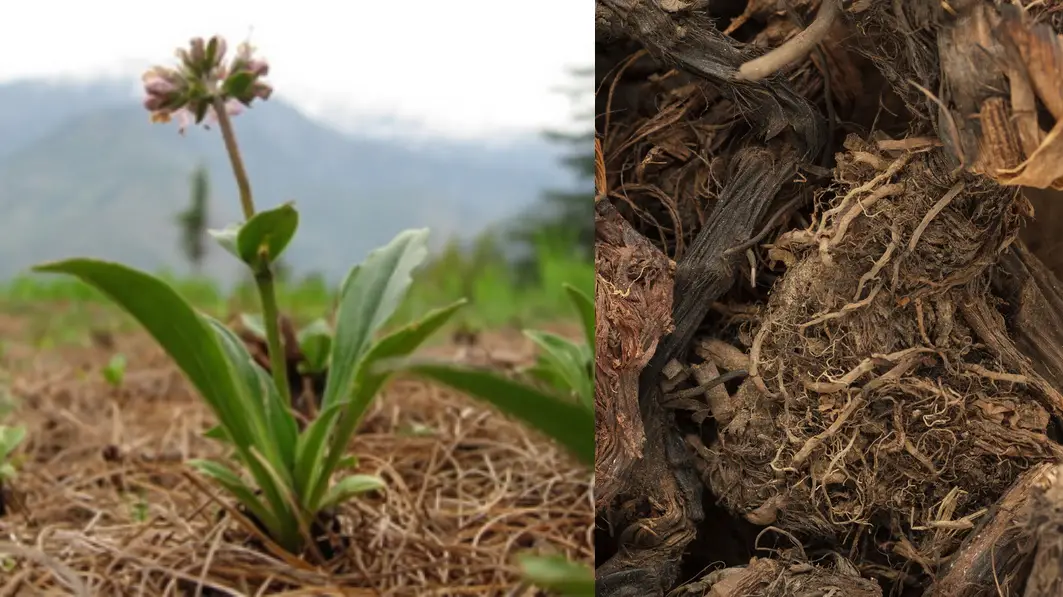
This plant has been used in ancient times as an anti-inflammatory and pain reliever, as well as a general tonic for the stomach. It can also help with digestion problems and upset stomachs. The herb promotes hair growth by stimulating blood flow to the scalp, which helps nourish your follicles with nutrients needed for healthy new growth.
Fo-Ti (Epimedium brevicornum)
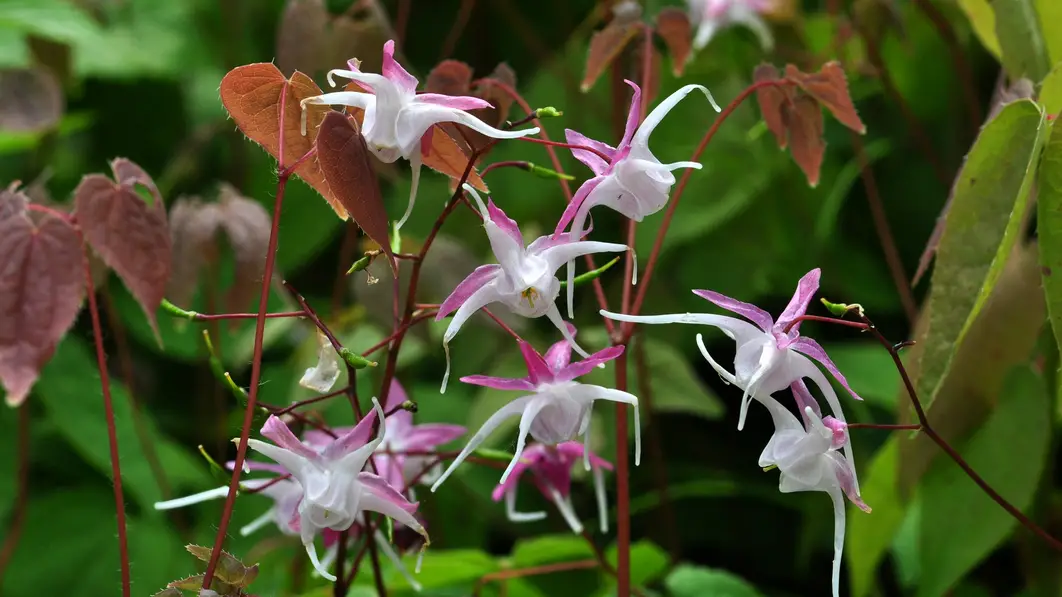
Fo-Ti is another one of those “oldie but goodie” Chinese herbs that have been around since at least 3000 B.C., when it was discovered growing near Huangshan Mountain (Huangshan means “mountain of flowers”). It contains chemicals called terpenoids that act similarly to testosterone on cells within your body; this makes it useful in treating baldness because it stimulates hair follicles while reducing inflammation throughout the body.
Yarrow (Achillea millefolium)
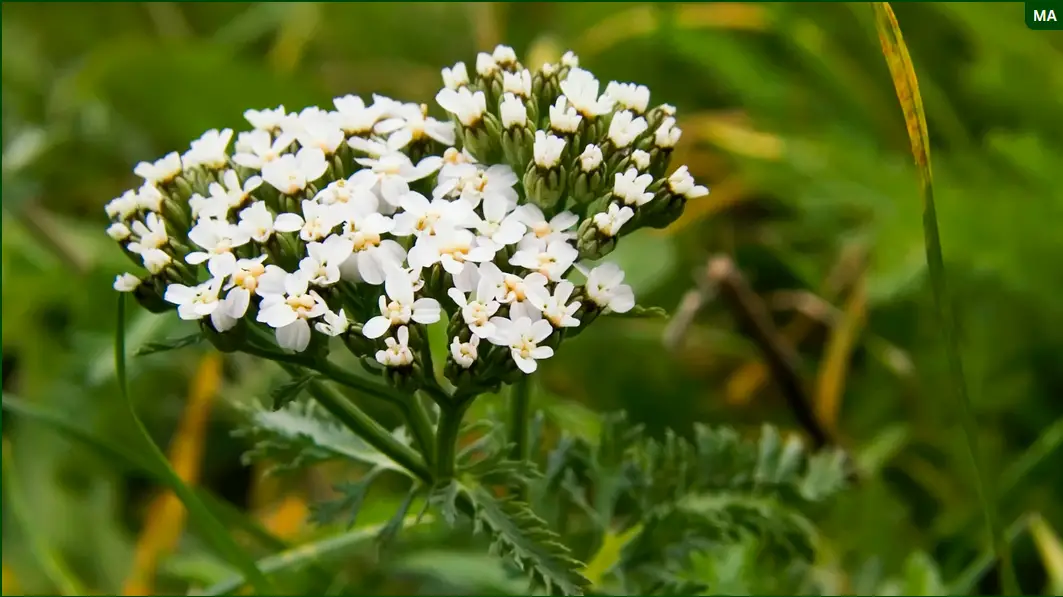
Yarrow (Achillea millefolium) This flowering plant grows wild throughout Europe and Asia, where its leaves are used medicinally or brewed into tea beverages or poultices for wounds.
Ginseng (Panax ginseng)
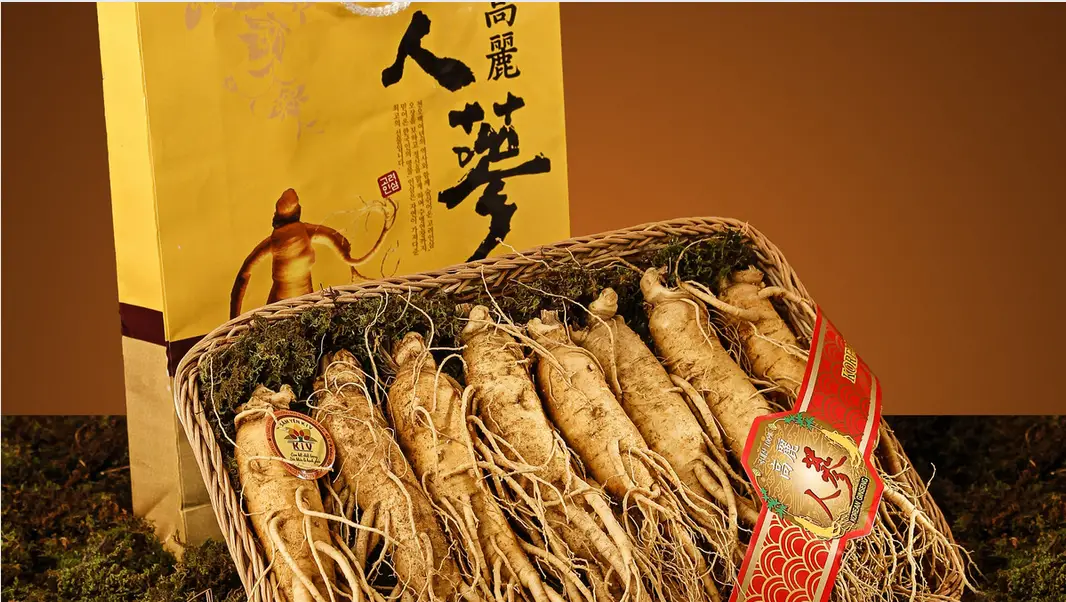
Ginseng has long been revered by humans due to its ability to improve sexual performance among men. Stress is a big reason why people lose their hair. People know ginseng can help reduce stress and put you in the “zen zone.” But you’ll also stay alert since eating ginseng is thought to make your mind work better. Ginseng is also said to help lower your nose’s nasty reaction when someone’s allergies are triggered, which can make you sneeze a lot.
Ayurvedic herbs for hair growth and thickness
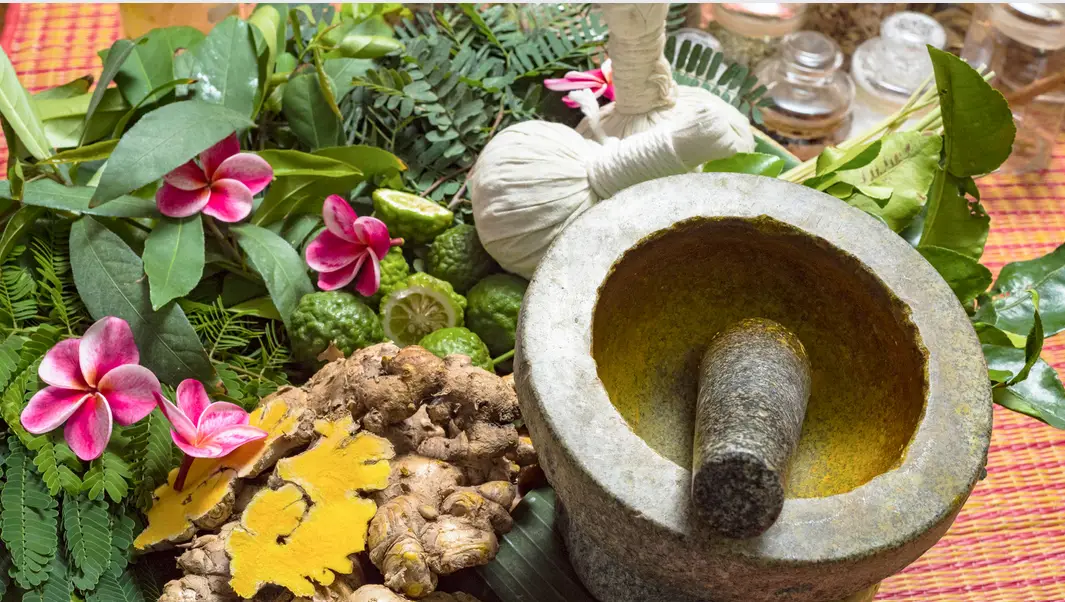
Ayurvedic herbs have been used for centuries as natural remedies for various ailments. Many of these herbs can also be beneficial when it comes to hair growth and thickness.
Here are some of the most powerful ayurvedic herbs to consider when looking to support the health of your hair.
- Amla: is an ayurvedic herb that has been used for thousands of years to support hair growth and thickness. Amla can be taken in the form of an herbal tea or powder supplement. It contains vitamin C, which helps improve blood circulation to the scalp and promote hair growth.
- Brahmi: is another ayurvedic herb that has long been used for its beneficial effects on hair. It is believed to nourish the hair follicles, which in turn helps stimulate hair growth and reduce shedding. Brahmi can be taken in a supplement form or made into a herbal tea.
- Bhringraj: is a commonly used ayurvedic herb that is believed to help with hair growth and thickness. This herb is said to prevent premature greying and hair loss while also encouraging healthy and strong hair growth. Bhringraj can be taken as a supplement or added to a herbal tea.
- Neem: is another powerful ayurvedic herb that has been used for centuries in India to help with a variety of ailments, including hair loss. It is thought to reduce dandruff, prevent infection and scalp irritation, and improve blood circulation to the scalp, all of which help to promote healthy hair growth and thickness. Neem can be taken as a supplement or made into a herbal tea for hair growth.
Simple Ayurvedic Hair Loss Remedies

Remedy 1
This remedy works if your hair is continuously breaking off and falling. Extract the juice of a single lemon. Finely grind the powder of the root of a banyan tree and mix thoroughly in the lemon juice. Wash your hair with this solution. When done, dry your hair with a drier and then apply more than the normal amount of coconut oil on the scalp. Do this regularly. Within a few days, you will find the quality of your hair improving.
Remedy 2
Prepare the fine powder of the Amalaki (Indian Gooseberry) and soak it in water. Keep this overnight. In the morning, squash the powder in the water and let it exude thoroughly into the water. You will get a mild pasty consistency. Then squeeze the juice of a lemon or two. Use this vitamin C-rich solution to wash your hair. The solution will foam. Work your hands into the roots of the hair till the foam is profuse. After fifteen minutes of this treatment, you can wash it off. This kind of treatment will not only treat hair loss, but it will also make the hair blacker, denser, longer and softer. A month of this treatment on a daily basis will show you positive results.
Remedy 3
Boil some udad daal (lentils) in water. When boiled enough, let them cool. Then mash the daal and apply it vigorously on the hair, working at the roots. This treatment provides proteins to your hair, which is very necessary for its proper growth. Within a few days of this continuous treatment, your hair loss problems will begin to dwindle.
Remedy 4
This treatment works for alopecia, i.e. baldness or thinness of hair. Take a dry ripe amalaki fruit and grind it to a powder. Put this powder in coconut oil or chameli (Jasminum grandiflorum, Spanish Jasmine) oil. Use this oil to massage the scalp. Then put this solution in water and wash the hair thoroughly. Continue this for a month to observe the benefits. You must also chew on the dry Amalaki fruit several times a day.
Remedy 5
If your hair is thinning out, then the following remedy can help. Prepare a mixture of the powders of the seeds, leaves and peel of a pomegranate. Add this to mustard oil. Keep it on a flame. The powders will begin to get cooked. When the powders seem cooked enough, then strain the oil through a cloth and collect the filtrate in a bottle. Cork this bottle. Apply this oil twice or thrice on the scalp a day. Within a few days, hair loss will stop, and new hair will begin growing.
Remedy 6
Grind some green coriander and extract the juices from it. Use these juices to massage the scalp. This will make your hair soft and black and stop hair loss. This remedy is simple, but it is so effective that it can even make hair grow back on the scalp. Hence it is looked upon as a treatment for alopecia.
Remedy 7
This is not a specific remedy, but it is a general method to care for your hair to stop hair loss in the future. Collect one tablespoon of powder of shikakai (Acacia concinna, acacia) and ritha (Sapindus mukorossi, soapnut). Add this powder to a half pint of water and boil it. When the boiling has taken place properly, then cool it, strain it, and use the filtrate as you would use a regular shampoo. This is the best natural shampoo in the world and perhaps the world’s oldest pH-balanced shampoo. Daily using this shampoo will keep all hair loss problems at bay.
Treatment with Special Ayurvedic Methods
Bhringaraja is the drug of choice for hair problems. It is either taken orally or used for massaging the scalp on a daily basis in the form of Maha Bhringaraja tail or Nilibhringadi taila. The general mode of using it is to massage the scalp thoroughly and then have a bath one hour later. But it must be remembered that Bhringaraja will first remove the weak hair from the scalp. Hence it may appear that the hair is thinning more in the beginning. This is temporary, though; the new hair that will grow will be healthier and stronger.
Hair loss (and, in fact, all problems relating to hair) are Kapha problems. They happen when the kapha dosha is vitiated. Hence, kapha must not be allowed to accumulate in the body. This happens when there is a common cold. For this reason, common colds must be treated quickly. The same can be said about sinusitis.
You will also like the best Ayurvedic treatment for hair loss and regrowth.
Other Herbs for Hair Growth
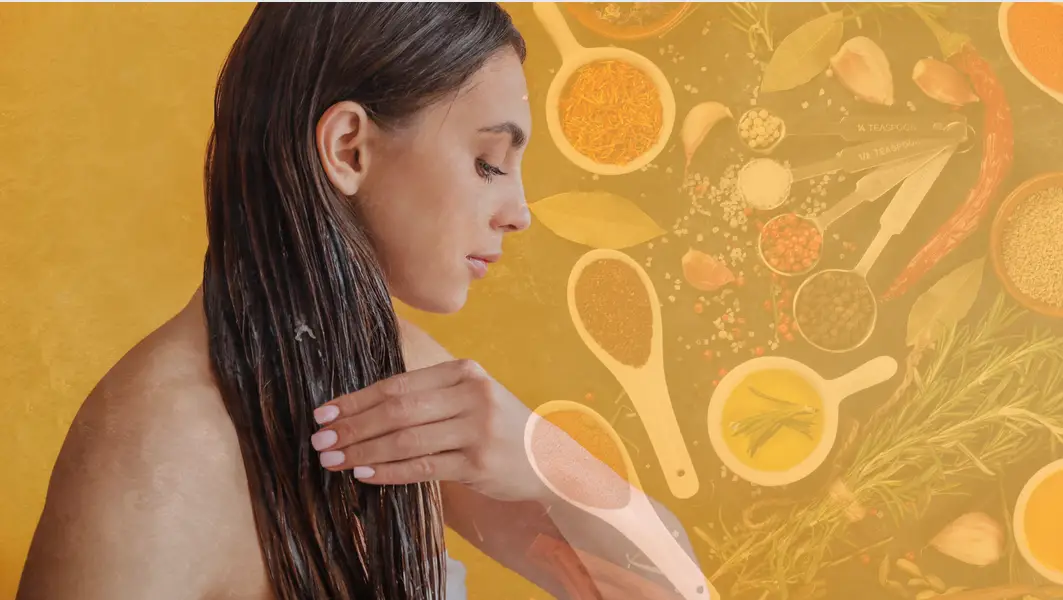
Aside from the above-mentioned ayurvedic herbs, there are other herbs that may stimulate hair growth and thickness.
Other herbs that are good for hair growth include:
- Holy basil – (tulsi) is another herb commonly used in traditional Indian medicine for its benefits to hair growth. It has a variety of antibacterial and anti-fungal properties that can help fight off infections and parasites that can cause hair loss. It is also thought to have antiseptic properties that make it a great natural remedy for scalp infections, which can lead to hair loss.
- Mugwort – is a medicinal herb with various uses, including hair growth. It has anti-inflammatory and antibacterial properties, which help promote healthy scalp conditions. Studies have shown that regular use of mugwort can reduce hair loss and stimulate hair regrowth.
- Lemon verbena – and its benefits for hair growth (also known as lemon balm) is a perennial plant with bright yellow flowers that grows naturally in temperate regions all over the world. The leaves have been used as a herb since ancient times. Lemon verbena is one of the most popular herbs in American cuisine, thanks to its distinctive lemony taste—it’s often added to soups or stews after cooking meat because it enhances flavor without overpowering the dish itself! Lemon verbena is a plant native to the Mediterranean region and is widely used in Nigerian herbs for hair growth. The leaves of the plant contain vitamins A, B, C, and E, as well as antioxidants and minerals like iron and zinc, which are all beneficial for hair health. Regularly using an herbal oil made from lemon verbena can help nourish the scalp and prevent hair loss.
For those looking for natural solutions for hair growth, there are many herbs to choose from. Fulani herbs for hair growth, like tobacco leaves, yellow dock root, sarsaparilla root, nettle leaf, and rosemary, are all known for their ability to promote healthy hair growth. Herb oils such as rosemary, cedarwood, lavender, and chamomile can be massaged into the scalp to nourish the roots of the hair follicles. Herbal teas such as green tea, chamomile tea, and peppermint tea can also be consumed to improve scalp circulation and promote healthier hair growth.
Herb Oil for Hair Growth
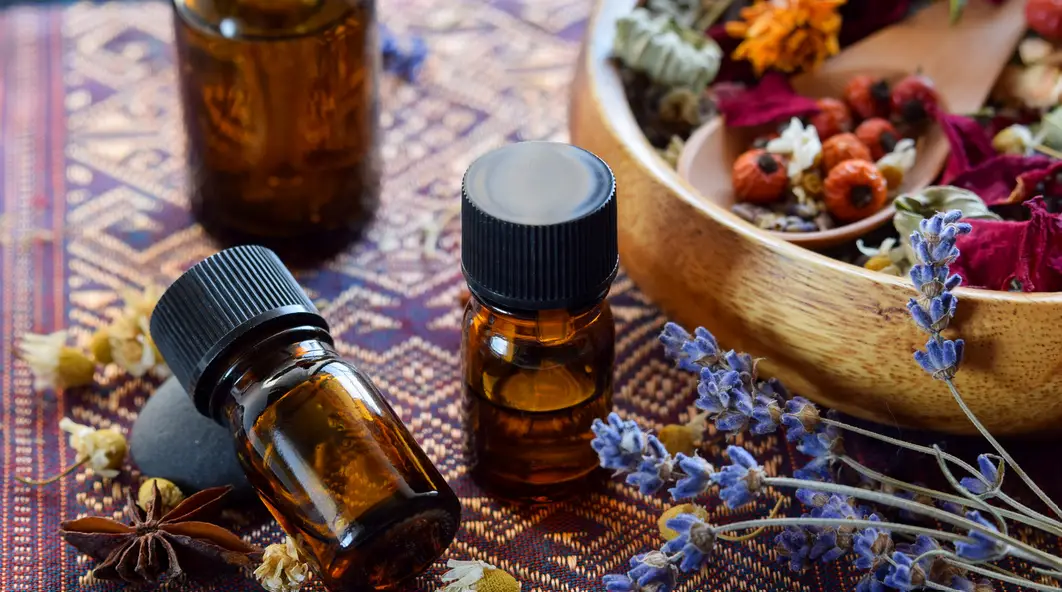
Herb oil for hair growth is a mix of various herbs and oils. It can be used as a scalp treatment or applied directly to your scalp. The most common oils used in this formula are olive oil, coconut oil, castor oil, jojoba oil, and grapeseed oil. Other options include avocado oil and almond or peanut butter (which you may already use on your skin). You can also add sesame seeds to the blend if you have dry hair that needs extra moisture.
Herb oils work by moisturizing the scalp while they stimulate blood flow to promote new growth of healthy follicles that produce hair strands more quickly than normal (1). This will make it easier for you to grow out those long locks!
The herbs commonly used in hair growth oil blends are rosemary, thyme, and lavender. You can also add sage and arnica to the mix. This will ensure that your scalp gets all of the nutrients it needs to regenerate new hair cells.
Herbal Tea for Hair Growth
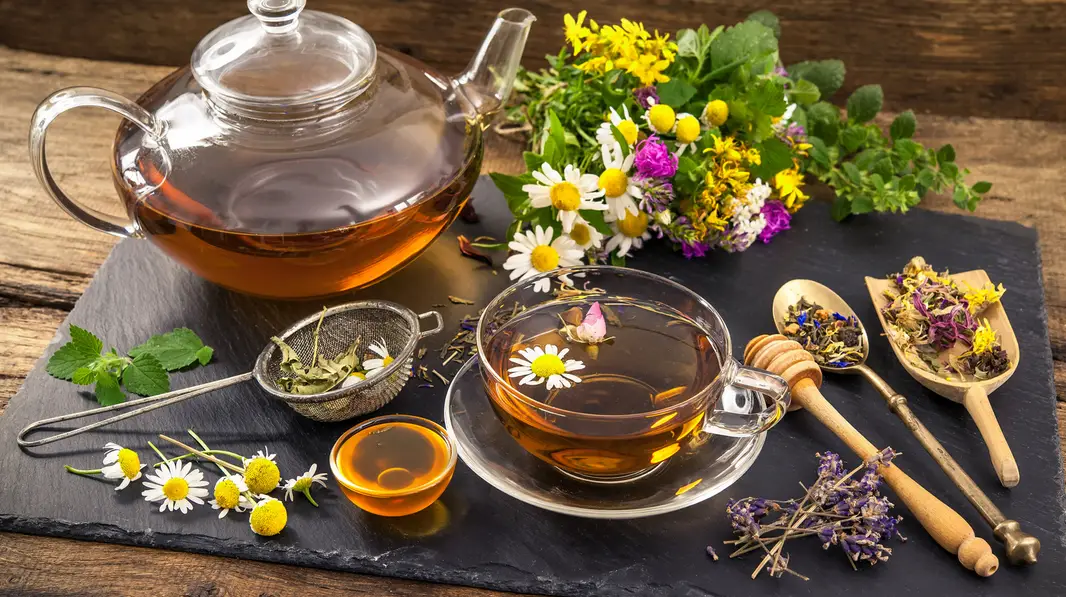
There are many herbs and herbal teas that have potential benefits for hair loss. Some of these herbal teas include Nettle Leaf Tea, Green Tea, Horsetail Tea, Licorice Root Tea, Peppermint Tea, and Chamomile Tea.
The following herbs are the most effective herbs tea for hair growth:
- Nettle Leaf Tea – helps with preventing dandruff, nourishing hair follicles, and controlling oily scalp.
- Green Tea – has antioxidants that may help in improving hair growth and preventing hair loss.
- Horsetail Tea – helps in repairing damaged hair, controlling oil, and stimulating the scalp.
- Licorice Root Tea – may be beneficial in increasing blood circulation and promoting hair growth.
- Peppermint Tea – helps in providing a refreshing, invigorating sensation that can help in unclogging hair follicles.
- Chamomile Tea – has properties that can help reduce inflammation in the scalp, as well as moisturize and condition the hair.
- Black Cohosh (Caulophyllum thalictroides) – This herb can be used as a tea or tincture by itself or with other herbs, such as nettle root powder. It helps to remove impurities from your body while promoting blood flow through its cleansing properties.
These different herbal teas may provide various benefits for hair loss, so try different types of herbal teas and see which ones work best for you.
Plants for Skin Herbal Hair Growth Oil
Using plants for skin and herbal hair growth oil is a great way to improve your skin and hair health. The herbs used in this oil help with many skin problems, including acne, eczema, and psoriasis. They also have been known to stimulate the growth of new follicles (the small sacs in which hair grows) on your scalp that can ultimately lead to healthier-looking locks!
These oils are made by steeping dried herbs in olive oil or coconut oil overnight before straining out any excess liquid. You can apply these directly onto your scalp or mix them together with water or other natural ingredients for an all-over treatment that’s great for oily scalps as well!
If you want something more concentrated than what we’ve suggested above but still want something that works quickly—and doesn’t require expensive equipment—check out our guide on how we make our own home remedies at home here:
How to Use Tobacco Leaves for Hair Growth
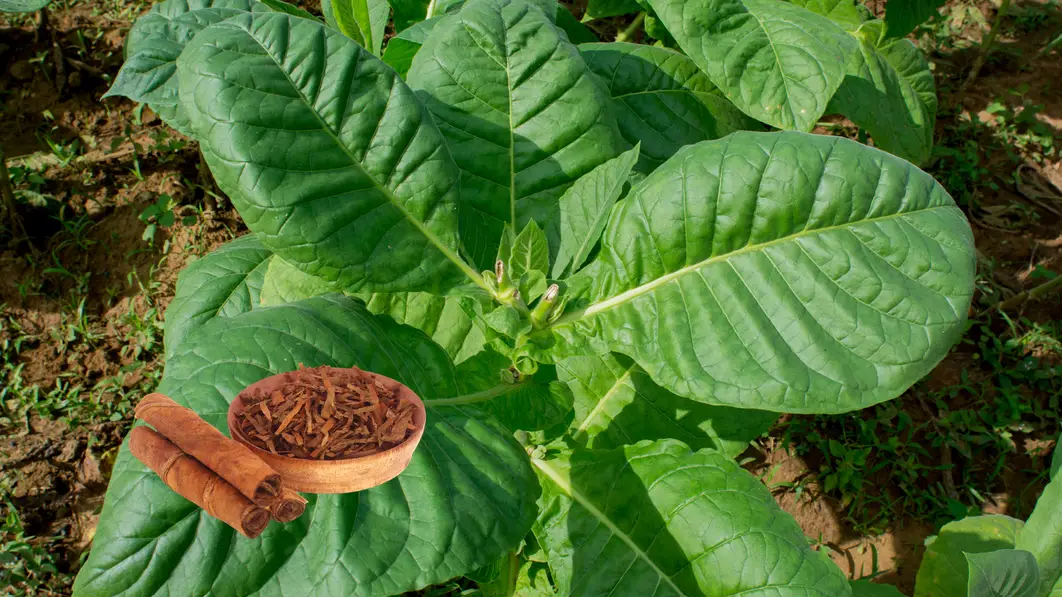
Tobacco leaves are used as an oil, shampoo, and mask. They are also considered a hair growth serum.
The tobacco plant is native to the Americas and was used by Native Americans for hundreds of years before Europeans arrived on their shores. Tobacco leaves have been used as an herbal remedy since ancient times; they have been used as far back as the 5th century B.C.! In fact, it’s believed that Hippocrates himself prescribed tobacco smoke to treat various ailments, including gout and tuberculosis (T.B.).
Today we know that smoking cigarettes causes cancer cell growth in lung tissue, but did you know that consuming even just one leaf per day could help prevent baldness? It turns out there may be more benefits than just preventing baldness from occurring – many people claim that eating enough green leafy plants such as spinach or kale will help boost your immune system while also helping keep up with those pesky dandruff flakes that keep coming back no matter how hard you try cleaning them away!
Herbs for hair growth and thickness
Fo-Ti is a herb that has been used in Chinese medicine for thousands of years. It contains several compounds that stimulate hair growth, including ginsenoside Rg1 and iridoid glycosides (a type of flavonoid). Fo-Ti can be taken in a tea or pill form; however, it’s best to use it under the supervision of a licensed practitioner who understands its uses and side effects.
Rosemary has long been used as an herb for beauty purposes by both men and women alike. Rosemary oil is said to improve circulation throughout the body, which may contribute towards hair growth by increasing blood flow through your scalp area—the same area where you’ll find follicles inside each strand! Chickweed contains beta-carotene, which helps prevent breakage by helping maintain moisture levels in our skin cells; this also makes chickweed an excellent choice when trying out new products because, unlike other options available online today (such as coconut oil), chickweed actually works wonders without leaving any bad aftertaste behind either! Nettle leaves contain iron which allows them.
African herbs for hair growth
African herbs for hair growth and thickness, these herbs below are the best natural remedies to treat your hair problems. You can use these herbs to grow your hair faster, thicker and stronger. Here are some of the most popular African herbs that you can use to promote healthy hair growth:
Black Lemon Zest
Oily or dry scalp become normal, weakened follicles are rejuvenated, and their growth/ resting cycle is re-balanced so that more follicles provide hair at any one time; in the majority of cases, people see regrowth within 3 to 4 weeks using Foliprime for easy hair growth- Herbal Black Lemon Zest every night.
Seeing Is Believing:
Research shows that hair regrowth is most active at night. Easy Grow Hair – Herbal Black Lemon Zest works when used either day or night.
If you do feel some itching after you have rubbed Foliprime – Herbal Black Lemon Zest on your scalp, that is good. The formula is doing its job. Awakening your dormant hair follicles- saying wake up and send hair.
Unlike other herbal hair loss SERUM (so-called safe to use), this SERUM is safe to use. It will heal and repair hair loss quickly. Most people that had dandruff trouble have reported that their dandruff was gone within days and had not returned.
Comfrey (Symphytum officinale)
This herb is also known as knit bone or bone breaker because it regulates blood flow in the scalp by increasing oxygen levels in the blood vessels of your scalp. It also helps reduce inflammation, which is why it’s good for treating scalp problems like dandruff or psoriasis. If you don’t have any dandruff on your head at all times but notice that there are patches when they appear, then comfrey can help! Just remember not too much, though, because too much could cause irritation, so keep using it only after consulting with a doctor first before making any decisions about which type works best against yours specifically!
Garlic cloves (Allium sativum)
These cloves contain sulfuric compounds called alliinase enzymes that help increase nutrient absorption in order to promote faster tissue growth while decreasing inflammation caused by poor circulation patterns within those same areas leading up through pores where bacteria tend towards growing quicker than normal due its lower pH levels meaning less acidity inside versus outside which would mean better moisturization properties overall – especially if combined with other ingredients such as vitamin E oil capsules; beta carotene tablets (which contain vitamin C); zinc sulfate tablets; hydrochloric acid drops etcetera.”
Spices for hair growth
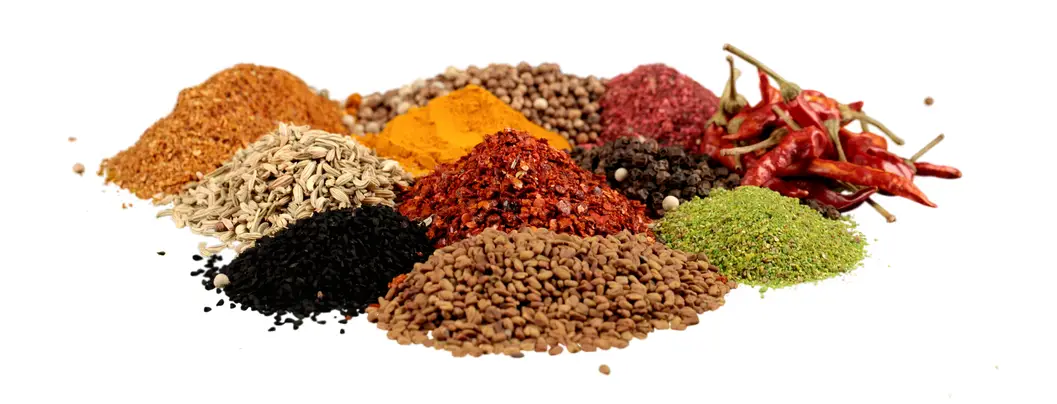
There are several spices that can help promote hair growth and make hair stronger and healthier. Cumin, Turmeric, cinnamon, black pepper, basil, sesame seeds, thyme, and garlic are all spices that can make hair look and feel good. Spices are a great way to stimulate the scalp and promote hair growth. They can also help keep your hair looking healthy and full. The following spices will help you achieve all of these benefits:
- Turmeric: This spice has been used in Ayurvedic medicine for centuries as a natural remedy for promoting health, strong bones, digestion problems, and more. It’s also known as curcumin or diferuloylmethane (DFM). You’ll find it in many Indian dishes, including curries or rice dishes, where it adds color to the dish! Turmeric is known to be one of nature’s richest sources of antioxidants like vitamin C, which keeps your skin looking younger longer than ever before! One study found that people who took turmeric twice daily had less pigmentation than those who did not take any supplement at all, so this could be good news if you’re trying out new products without knowing whether they’ll work well together yet – stick with what feels right until then!
- Cinnamon: stimulates blood flow to the scalp so that more nutrients can get to the hair follicles. This results in faster hair growth and less shedding and breakage
- Black pepper: also stimulates blood flow to the scalp.
- Basil oil: can help restore any hair loss issues you may have if applied a few drops to your scalp a couple of times a day.
- Coriander seeds: stimulate hair roots and aid in the growth of hair. Fresh coriander leaves can be applied in paste form on the scalp for 30 minutes before rinsing off to stimulate hair growth.
- Kalonji seeds: can be infused in coconut oil or used in powdered form with fenugreek powder to promote healthy hair growth.
- Rosemary leaf extract: stimulates hair regrowth, while rosemary oil works as well as a 2% minoxidil solution for treating androgenetic alopecia (permanent loss of hair that occurs in different patterns in men).
The best way to use these spices is by adding them to your diet or applying them directly onto your scalp. For example, you could mix honey and cinnamon for a home remedy for hair loss.
Hair growth: focus on the herbal therapeutic agent
This article, herbs that stimulate hair growth PDF, examines plants that have been known to facilitate hair growth according to various ethnobotanical studies and traditional medicinal plants. Additionally, it surveys developments in hair rejuvenation since 1926 and reviews the effectiveness of herbal drugs as a safer, more efficient alternative to other treatments.
Though the reasons behind hair loss remain largely unknown, various solutions, such as natural and synthetic products, are used to address the issue of alopecia, with natural remedies increasing in popularity due to fewer side effects and improved formulation techniques. Ancient systems of medicine such as Ayurveda, Chinese, and Unani have relied on plants for promoting hair growth.
The article additionally delves into different herbs and herbal formulae, which are believed to reduce hair loss and encourage new growth. The Hair growth focus on the herbal therapeutic agent review further considers the mechanisms of action and the plant-derived constituents which are believed to have hair-growing capabilities.
What was the ancient remedy for hair growth?
Does your receding hairline or the patches of bald area bother you every morning? Or do you find it concerning to see clumps of hair sufficient enough to fill one square inch of a hair wig? You should be acquainted with the most effective ancient remedies for hair growth, which are a combination of things such as herbal treatments, nutritional diets, and massage techniques. Herbs and other natural remedies such as rosemary, hibiscus, castor oil, garlic, almond oil, coconut oil, aloe vera, honey, and curd were used as remedies for hair growth in ancient cultures.
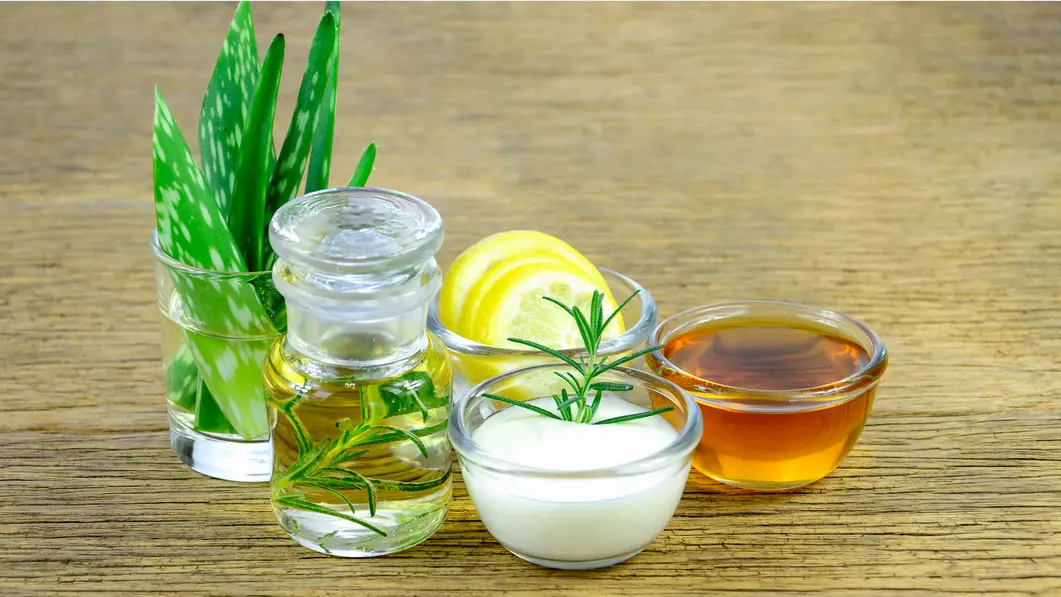
A nutritional diet is also essential for healthy hair. Eating a balanced diet with adequate protein, healthy fats, vitamins, and minerals will provide the necessary building blocks for hair growth. Massage treatments were used to improve blood circulation in the scalp, stimulate follicles, and keep the scalp nourished and hydrated. Last but not least, scalp care, such as exfoliation, hot oil treatments, and protective styles, also plays a role in promoting hair growth. All these remedies, combined with the right hair care products and regular trims, can help you to achieve strong, healthy, and beautiful hair.
Coconut Milk: This ingredient contains proteins in rich amounts and, when applied to the scalp regularly (about thrice a week), will help you achieve hair growth in areas where growth has begun to be limited and scarce.
Eggs: are a good source of protein that is required not only by the human body but as well as the hair for growth and development. Both egg yolk and the egg white are beneficial to human hair. Both of these egg components are well capable of having beneficial effects on hair and its growth and development. Egg provides healthy hair growth and improves hair strength. The egg also provides human scalp improvements, which should be applied mainly onto the human scalp for effective means.
Olive oil: contains beneficial substances that are effective in hair growth and improves scalp condition. It is among the natural remedies that are well capable of providing healthy scalp and hair growth. Olive oil includes olive extracts which are known worldwide to help maintain hair health and growth. This excellent remedy also affects the overall shine of hair. It greatly provides your hair shine and a healthy outlook.
Rose marry leaves: are popular natural remedies for hair growth that also provides fragrance. Rose marry leaves are an effective remedy to increase the rate of hair growth and improve the health of hair and scalp. To prepare rose marries, you have to boil its leaves first and drain out the solution, then let it cool for a while, and you can now use it. This excellent natural remedy for hair growth can be applied after a bath. With its fragrant aroma, you can benefit not only from hair growth but also as a perfume for rose marry leaves are well known worldwide for their smooth and fragrant smell.
Onion Rubs: This commonly used spice for delicacies is also an effective hair growth home remedy. Slice some onions and rub them into the scalp where there is less hair growth, most especially on the edges of your scalp near the forehead because this is where the hairline starts to recede. Leave your hair on for about 15 minutes and wash with warm water. Make sure you use a conditioner or shampoo which is fragrant enough to take away the pungent odour of the onion.
Mixed Kitchen Ingredients: Get one egg, a couple of tablespoons of honey, and olive oil—we’re not going to cook an omelette for breakfast, though! A mixture of these ingredients makes an effective hair growth home remedy and should be applied to the hair while massaging the scalp vigorously. Leave the mixture in your hair while using a shower cap to contain the moisture. Afterwards, wash your hair thoroughly.
Scalp Massage: Another effective ancient hair growth home remedy is simply massaging your scalp. Massaging stimulates the hair follicles and promotes hair growth. If you have Grapeseed oil in your kitchen cupboards, using it while massaging your scalp before you go to sleep accelerates hair growth too!
Making use of any hair growth ancient home remedy stated above will greatly help you with your receding hairline and patchy baldness issues. Topping these up with proper diet and scalp care will further increase your chances of getting the youthful hairline that you have always wanted to keep.
What herb makes hair grow faster?
Following are some of the easily available herbs that makes your hair grow faster:
1. Carthamus Tinctorius: It is popularly known as Safflower oil. This oil happens to be very useful in making hair follicles work again. It tends to increase blood circulation towards follicles, making follicles enriched with essential elements to combat any disruption in their functioning. It could be applied twice on the scalp in a day. Consistent and long-term use would give positive results.
2. Onion: This essential food ingredient happens to be a unanimous choice as a herbal paste to be applied on the scalp for improving hair regeneration. Onion proves effective because of its sulfur content. Before taking a bath, you can apply onion to your scalp. The practice could be continued for months to get the desired effect.
3. Red Henna: It is a very common herb in use to combat hair loss. This herb is better suggested to be used twice a week. If you constantly keep applying red henna on your scalp, you will prevent hair fall, and you might be able to activate follicles for hair regeneration.
4. Aloe Vera: It is also a commonly used herb for various purposes, and its efficacy for treating hair loss is due to the presence of nitric oxide and certain enzymes that help in hair nourishment and growth.
5. Red Pepper: It also serves the same purpose. But it shouldn’t be excessively used on hair.
6. Chinese herbs: These are great at stimulating circulation around your scalp while promoting healthy blood flow throughout all parts of your body, so there’s no reason why they wouldn’t improve things like dandruff or excessive hair loss if used regularly enough over time without fail (which isn’t always possible).
They work especially well when combined with other natural remedies such as essential oils like lavender oil since they both have antibacterial properties which kill bacteria while helping prevent infections from spreading further down into deeper layers where they could cause more damage than good if left untreated long enough.”
What did Indians use for hair growth?
A number of herbs have been used to promote hair growth. The most popular herbal supplements are:
- Amchur (also called amla) is a fruit that grows on trees in India and other countries. This herb contains vitamin C, which helps prevent hair loss, as well as minerals such as iron and zinc. The juice or powder can be applied directly to the scalp daily for faster results.
- Amla also works well with kesar-gulkand (fragrant sandalwood). Both should be applied directly to your scalp twice a week before shampooing in order to get the best results from this combination therapy!
Conclusion
Herbs have been used for centuries to improve hair growth and thickness. From rosemary and lavender to green tea and chamomile, there are many herbs that can help stimulate hair growth and combat hair loss. Nigerian herbs for hair growth, Fulani herbs for hair growth, Chinese herbs for hair growth, herbal tea for hair growth, and herb oils for hair growth are just some of the natural solutions available for those seeking to nourish their hair and scalp.
Using herbs for hair growth is a great way to explore natural alternatives to harsh chemical treatments and expensive procedures. Download our PDF to learn more about the best ayurvedic herbs for hair growth and thickness. We also encourage you to share your experiences with using herbs for hair growth and let us know which herbal remedies you’ve tried. Together, we can continue exploring natural hair care options that promote healthy hair and a healthy lifestyle!
- AI Powered Bald Filter Online 2024: See Yourself with No Hair! - January 19, 2024
- Harklinikken Bad Reviews 2024: Analyzing Negative Feedbacks - January 18, 2024
- How to Get the Alex Eubank Hair | Step-By-Step Tutorial 2024 - January 18, 2024
